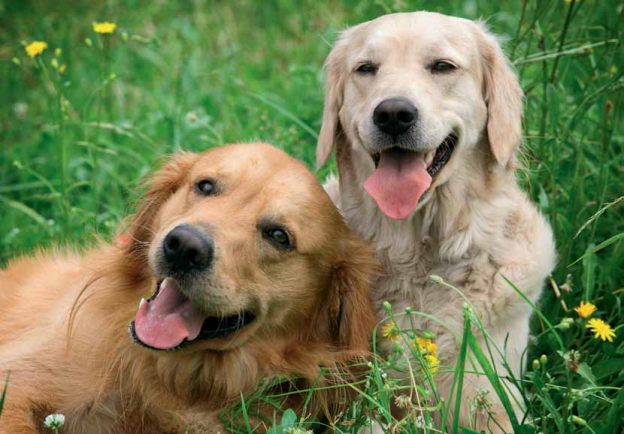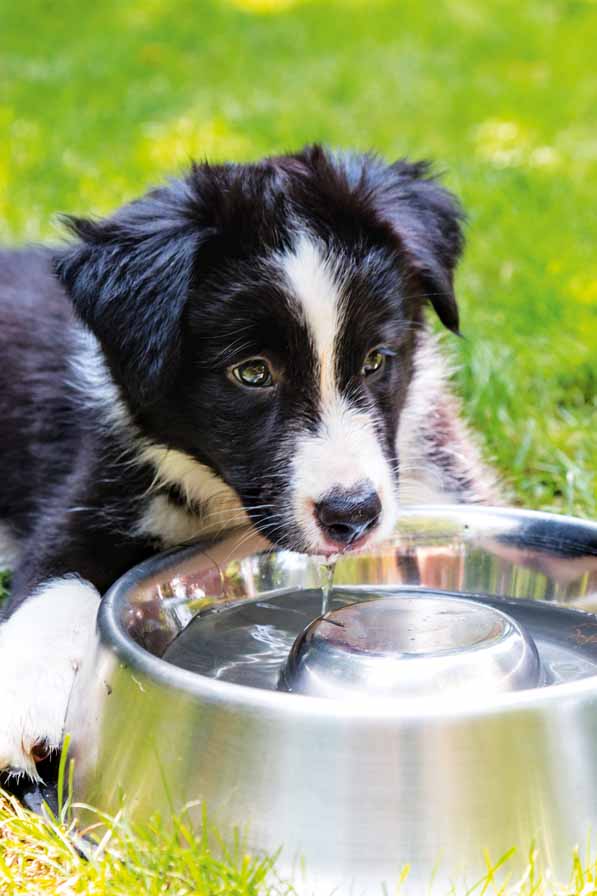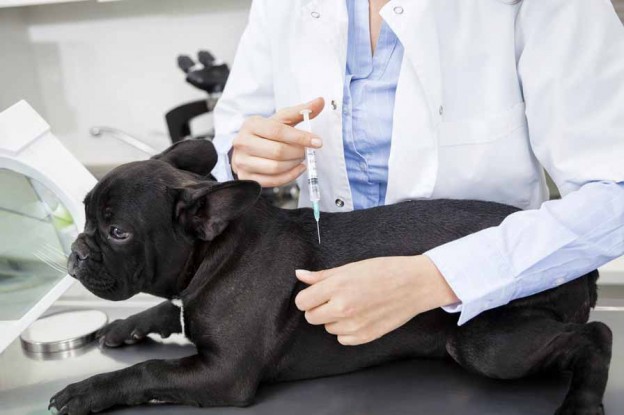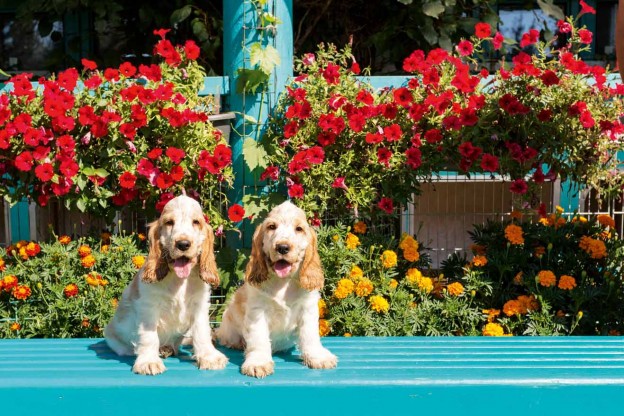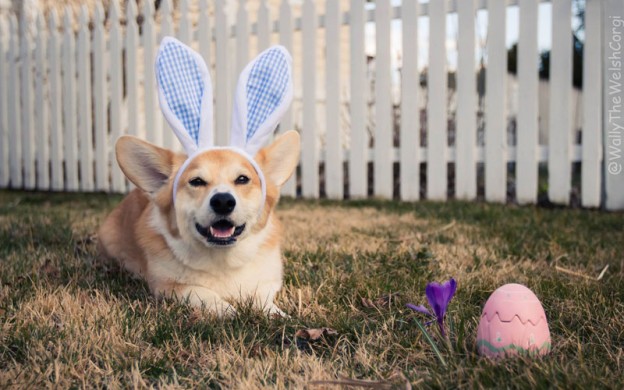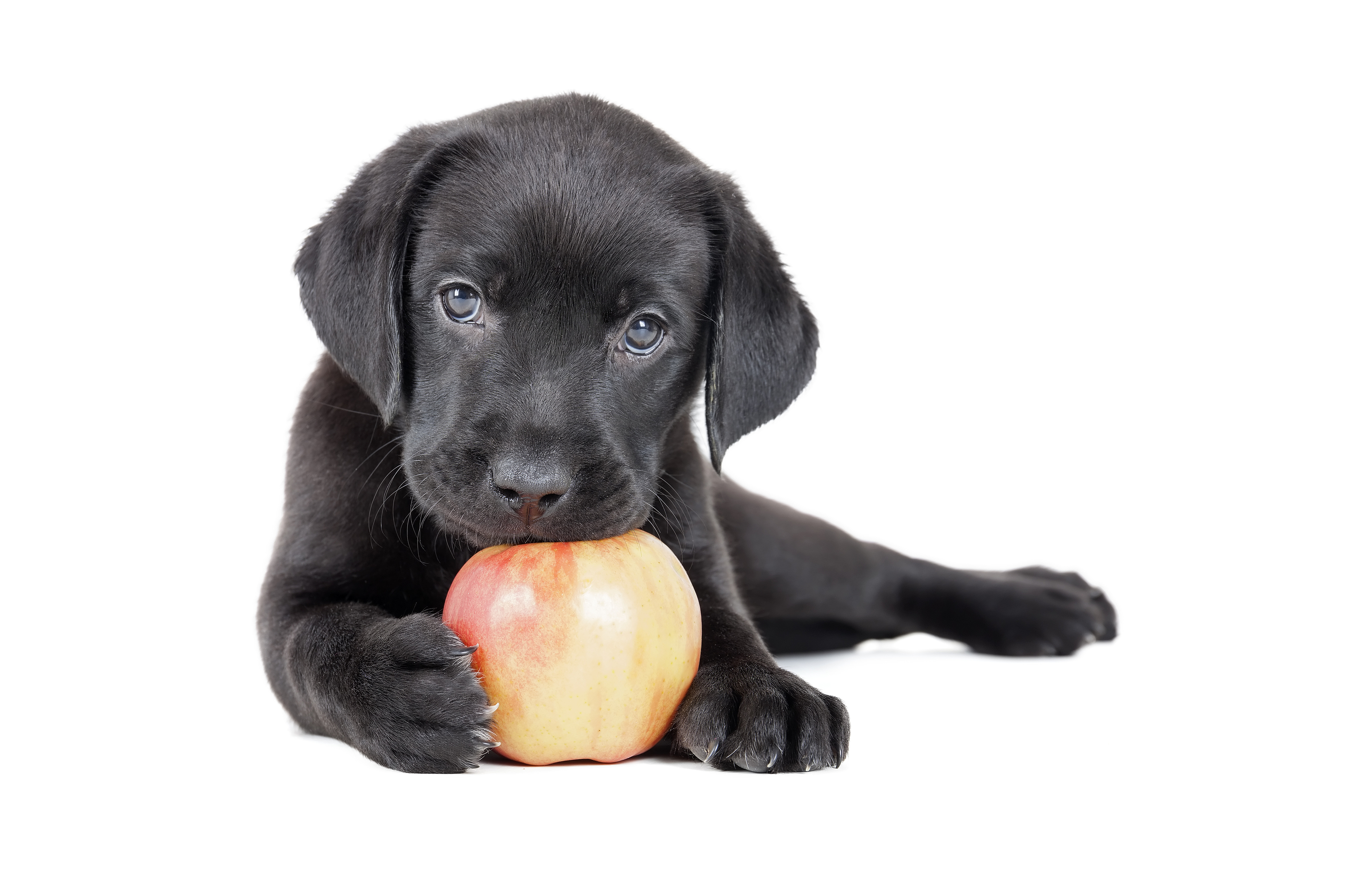
Will feeding your dog a natural diet help it live a long and healthy life? Kylie Baracz finds out.
As dog owners, we know our canines are primarily meat eaters. But what type of food is best for their nutrition?
Over the past few years, there has been a surge of natural and organic food on our shelves, and this seems to be the same for our pets. Dr Ian Murdoch of Pennant Hills Veterinary Hospital believes this may be due to our general increase in interest in what our pets are eating.
“I think the rise in these types of foods mirrors the public’s interest in their own food, that is, human food,” says Dr Murdoch. “There is a push for natural or organic food in our diets as they are perceived to be healthier. People are now looking for these things in their pet’s foods.”
Chris Essex, founder of Big Dog Pet Foods, says nutrition is important for dogs and therefore owners should endeavour to feed the very best.
“Dogs are part of the family and, like any family member, we love them unconditionally. Therefore, we want them around as long as possible, so we need to ensure they are being fed the very best nutrition in order to achieve longevity,” he says.
“I think there is a real shift to consumers being more educated about nutrition and just as we want to eat cleaner, greener and healthier sustainable foods, the same is also now being demanded for our pets. It’s great to see and be a part of!”
Helen McNall, owner of Wellbeing for Dogs, says when purchasing natural pet food, you need to be careful of some that say they’re natural but may not be.
“Tragically, almost any commercial pet food can have ‘natural’ slapped on the label. It is almost meaningless these days. And pictures of happy dogs and fresh vegetables on the packaging have very little relationship to what is in the pack,” she says.
“We are dog lovers and we really want to do the best by our dogs but the market is confusing and full of conflicting messages. We trade up, we buy more expensive pet food on the basis that it must have better manufacturing, better-quality ingredients. Certainly for some brands, that is true but the very best product is still mainly a dehydrated extruded product [that is] highly processed and even if it is made from ‘organic’ ingredients, it is still a waste product from the organic industry.”
McNall believes the term “natural” should be food that naturally comes from your kitchen, not a factory.
What should I be feeding my dog?
If you choose to feed your dog a natural or organic diet, Dr Murdoch suggests checking that the food you serve has all the essential nutritional ingredients.
“Dogs, being essentially carnivores, need protein (containing essential amino acids) and fats (containing essential fatty acids), vitamins (interestingly Vitamin C is not essential to a dog’s diet as they can manufacture it), minerals such as calcium and phosphorus (in the right balance), sodium, potassium etc, and trace elements,” explains Dr Murdoch. “Carbohydrates contribute to calories in a dog’s diet but are otherwise not essential. Fibre is also of low significance in a healthy, normal dog.”
Dr Murdoch notes there is nothing inherently right or wrong about natural or organic diets. The main thing to check is that they meet your dog’s nutritional requirements. He also adds that you need to be careful if you decide to feed your dog a raw diet.
“People feeding raw-meat diets need to be aware of the human health concerns from bacteria and parasites that may not directly affect the dog, but may make the humans in the household seriously ill, especially very young children, older people or people with poor immune systems,” he says. “Raw meat and offal for dogs is not recommended by human health experts for these reasons.”
McNall suggests that every time you feed your dog to consider what you can do to improve the nutrition and nourishment the bowl provides.
“Whether that is adding some steamed, mashed fresh vegetables to a commercial pet food, or making extra when you cook for yourself to share with your dog, there are so many ways a dog lover can make their dog’s dinner just that bit better, and every act is a bonus to both.”
She also advises not waiting until your dog is older to check whether you are providing the right nutrition. “Start as soon as you can to nourish their body because they do nourish our souls.”
How do I know if my dog is undernourished?
Dr Murdoch says external signs of undernourishment in dogs include:
• Poor coat
• Poor skin condition
• Poor growth
• Poor muscle coverage
• Distorted skeleton (eg curved limbs or swelling of bones)
• Painful bones or lameness
• Lack of energy
• Poor immune systems (leading to various diseases)
“[These] conditions can worsen and lead to irreversible deformity or illness and even death,” says Dr Murdoch. “I should add that some diseases, for example hip dysplasia, most people know have a genetic component and they know to check the dog’s relatives for signs of the disease before breeding or purchasing certain breeds. But [some] diseases can be made much worse by feeding poorly constructed diets. Nutritional factors can influence the severity of the disease. [In the case of hip dysplasia], an oversupply of some nutrients can be to blame.”
If you see any of the above symptoms in your dog, visit your local vet.
Can dogs eat a vegetarian diet?
Dr Murdoch says a vegetarian diet is possible for dogs (not possible for cats) but the effort that one needs to go to, to meet nutritional requirements, is clearly just making a simple task complicated and risks making errors.
“The dentition of the dog and its digestive tract, and the behaviour of its wild relatives, tells you that dogs are primarily meat eaters”, he says.
Tips from food producers
Chris Essex — Big Dog Australia
“I studied food science and have always been interested in health. I’ve always had animals around me all my life also. So, via means of an opportunity to manufacture all-raw diets — specifically BARF diets — I jumped at the opportunity [to get involved in nutrition for animals]. It just made sense to me when I read and researched the need for raw diets for our pets. The opportunity to supply a quality all-natural diet for all the pets out there, knowing that their quality of life will be instantly changed for the better, with their parents being able to enjoy them longer, to this day, keeps the team at Big Dog and myself highly motivated every day.
“I like to encourage consumers to be brave and really think about what they are asking their pets to eat daily, and then think about whether they really do believe their pet will thrive on a diet that is being mass-produced, with high-carbohydrate inferior by-products as ingredients that are not complementary to a carnivore and, finally, loaded with synthetic vitamins and minerals.”
Helen McNall — Wellbeing for Dogs
“My passion is helping dog lovers improve the way they nourish their dogs and the best way to do that is with education, inspiration and products to help take the guesswork out of making real food for dogs. To me, natural means real food, whether that is cooked, raw or any variant on that, as long as it comes from a fridge and the outside aisle at the supermarket. I really want dog lovers to have choice, to be able to cook and make real fresh food for their dogs and I make products that support that, to ensure the dog’s nutritional needs are met. Dogs are amazing, I love them and it is fantastic to see a dog lover sharing actual real food, food from a kitchen, not food from a factory. Their dog is so much happier, [full of] excitement, joy and deliciousness, so my goal was always to find ways to support this.
“I wanted a way to make it simpler for dog lovers of the world who love food and want real food for their dog. It really is the best we can do for them. Yes, dogs do have different dietary needs to humans, but these are easily managed with Wellbeing Essentials, the product I developed (with others) to provide a micronutrient safety net. It takes out the guesswork and gives dog lovers the confidence to do what inherently feels right, to provide good food made with love for their dogs. It isn’t as difficult as it sounds, dogs love food and I believe they hang with us for food (and the belly rubs, walks in the park, play, loving … all the rest). Keep it simple and have a look at our website for ideas!”



